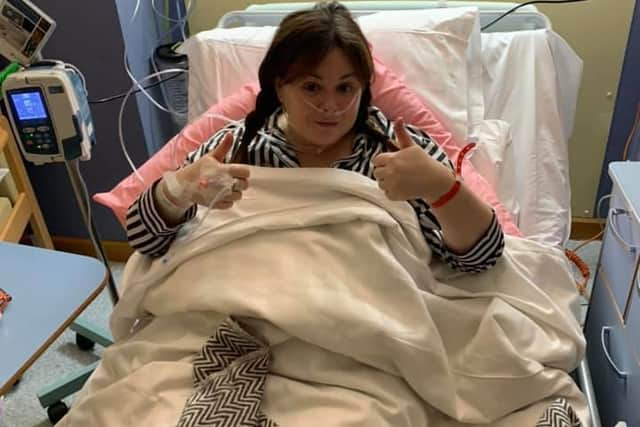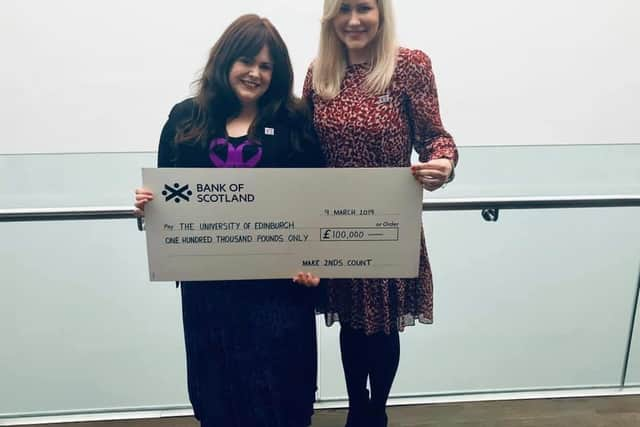'Sarah Harding's death has rocked the secondary breast cancer community' - says incurable cancer patient from Edinburgh
and live on Freeview channel 276
Let us know what you think and join the conversation at the bottom of this article.
The death of the Girls Aloud star, who passed away from from SBC aged 39, caused an outpouring of public grief earlier this month.
Lisa Fleming, who was diagnosed with the same disease in May 2017, said some coverage of the singer's death has seriously damaged the pubic's understanding of cancer.


Advertisement
Hide AdAdvertisement
Hide AdHurt by the inconsistent information published about the disease, the 37-year-old from Edinburgh said reports of Miss Harding’s death were hard to read.
“Sarah Harding’s death really has rocked the SBC community,” said Ms Fleming.
“Her death has been reported so incorrectly by so many in the media which is really disrespectful to Sarah, her family and to the SBC community.
“I saw one high profile presenter saying she was unlucky to have died, this isn’t right , SBC is an incurable form of cancer that thousands of women in the UK live with. She wasn't unusual or unlucky.


Advertisement
Hide AdAdvertisement
Hide Ad“It made me feel really sad to see reports like this because this is someone's life that we are talking about.
“I feel that the patients deserve their disease to be correctly reported. It also made me feel sad because I want people to know the truth about SBC.”
SBC, also known as metastatic breast cancer is when cancer cells that started in the breast spread to other parts of the body.
There are more than 35,000 people the UK currently living with this disease and nearly 1,000 patients lose their lives to this cancer every month.
We need more education
Advertisement
Hide AdAdvertisement
Hide AdMake 2nds Count, an Edinburgh-based charity set up by Ms Fleming to supporting people impacted by SBC, has emphasised how important is it to educate the public about the symptoms of the disease.
Head of fundraising and engagement at the charity, Emma Hall said: "What has not been clear in the news since the sad passing of Sarah Harding is that she had secondary breast cancer.
“The coverage has focused on checking for primary breast cancer, but not secondary, so people are not being informed about the different signs and symptoms to look for.
“There are about 35,000 people in the UK currently living with the disease and 1,000 lose their lives every month. We need more education, support and research, and understanding that with secondary breast cancer you won't be cured, you can only be treated.
Advertisement
Hide AdAdvertisement
Hide Ad"The signs and symptoms of secondary breast cancer vary in each patient. These can include: ongoing headaches and pain the bones that doesn't go away with pain medication; blurred vision, loss of balance or feeling or weakness in limbs; loss of appetite or weight loss; swelling of stomach, breathlessness or persistent cough and lumps or swollen areas under arms, in breast and or collarbone area.
It is important that you consult a doctor or your local breast cancer clinic if you have any signs or symptoms that are new or unusual for you, don't go away or don't have an obvious cause, such as an injury."
A message from the Editor:
Thank you for reading this article. We're more reliant on your support than ever as the shift in consumer habits brought about by coronavirus impacts our advertisers.
If you haven't already, please consider supporting our trusted, fact-checked journalism by taking out a digital subscription.
Comment Guidelines
National World encourages reader discussion on our stories. User feedback, insights and back-and-forth exchanges add a rich layer of context to reporting. Please review our Community Guidelines before commenting.